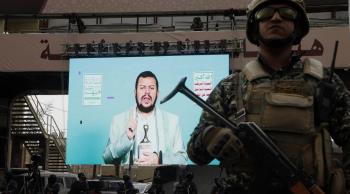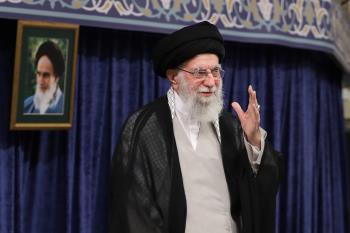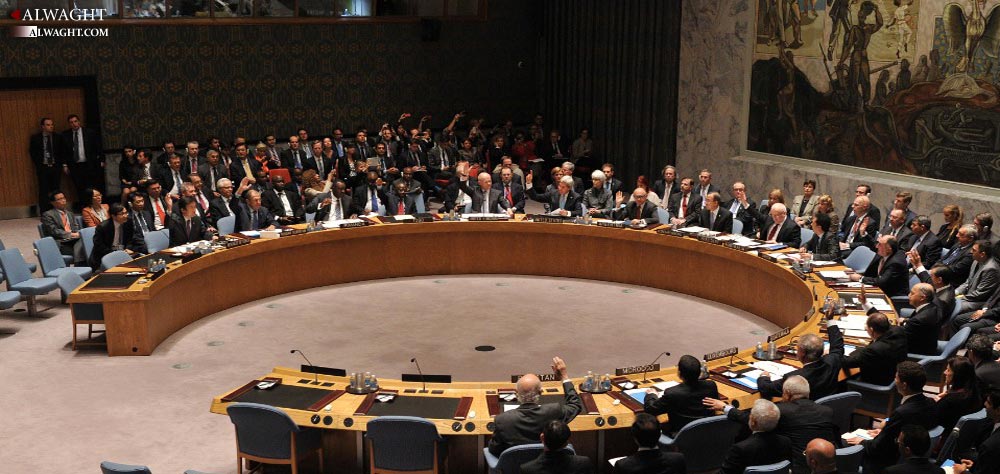Alwaght- After a long and problematic course, the UN Security Council has adopted a France-proposed resolution on Syria with a major vote of all of its members.
France has been following an anti-Syrian policy for six years, namely since the days the Syrian crisis erupted. The draft resolution demanded that a UN supervision on the evacuation of the civilians from Aleppo’s east and their protection be approved. Russia first disagreed with the resolution, arguing that former experiences show the foreign supporters of the terrorists have sent them weapons in eastern parts of the city under the cover of the humanitarian aids supplies. However, at Monday night the UN Security Council voted with all of its permanent and temporary members to send international supervisors to monitor the civilians' evacuation process in the northern city of Aleppo. The Security Council also urged all of the relevant sides to provide safety and security of the supervisors immediately and without violations. According to the resolution, the UN will comprehensively and neutrally monitor the process of evacuation of the civilians from Aleppo.
The Lebanon-based Al-Mayadeen TV has published text of the resolution, reporting that the draft bill has highlighted the need for all sides to carry out the mission with a commitment to independence and sovereignty of Syria. It urges the government to let out any people who want to get out of the eastern neighborhoods. The resolution also demands guaranteeing the right for anybody to go anywhere, as it calls for providing security of the people residing out of Aleppo. It asks the sides to pave the way for arrival of “neutral supervisors” to Aleppo gates as well as its eastern districts for an indefinite time.
The new resolution of the Security Council is actually an agreed-upon combination of two draft resolutions earlier proposed by Moscow and Paris but failed to gain approval. A couple of points need to be considered about the UN Syria resolution, including:
First, the adopted resolution proposes stationing of UN monitors on the Aleppo entrances and not sending them inside the city as France suggested. Commenting on the France-proposed draft bill, Vitaly Churkin, the Russian envoy to the UN, had said that Russia could not back the initial text of the resolution that insisted the UN observers must be sent and stationed in eastern Aleppo. The Russian UN envoy said, as quoted by the Rossiya Segodnya news agency, that what Paris proposed was risky and unenforceable, and that Russia could not let such a law on Syria be approved. Churkin continued that the supervisors' access should be limited to the Aleppo entrances, and so entry to the eastern Aleppo is impossible.
Second, deployment of the UN supervisors to the Syrian city is more ceremonial than operational. In fact, the European countries are seeking to flex muscles and save face in Aleppo after they sustained a big loss in east of the city, where was held by Western-backed anti-Damascus militants. To put it differently, they are doing their best to move out of a passive state in Aleppo struggle.
Third, one of the threats that can come from the UN Aleppo supervision plan is sending spies under the cover of the UN supervisors to Aleppo. The former experiences prove that the supervisors who represent the UN for specific duties in different mission have a double-sided role. Actually, they go to a certain country as international representatives but more do spying activities.
Fourth, entry of international supervisors to Syria is not a new thing. They have already been present in the war-torn country. Commenting on the issue, Bashar Jaafari, the permanent Syrian representative to the UN, has noted that the Security Council’s resolution talks about the international observers who are currently present in Aleppo’s east and their deployment in nothing new. Jaafari continued that Damascus welcomes any “good-faith” intentions included in the UN resolution.
Fifth, what can be a source of concerns is presence of observers from out of the UN personnel, namely presence of supervisors with brand of a specific country, something seen as provocative.
All in all, it can be noted that deploying UN supervisors is a move by the pro-terrorist countries in a bid to free themselves from the shock they received from victory of the Axis of Resistance in Aleppo last week. Additionally, sending the supervisors majorly aims at putting psychological strains on the Syrian government and backing the terrorists who are still optimistic about prospective developments.



























